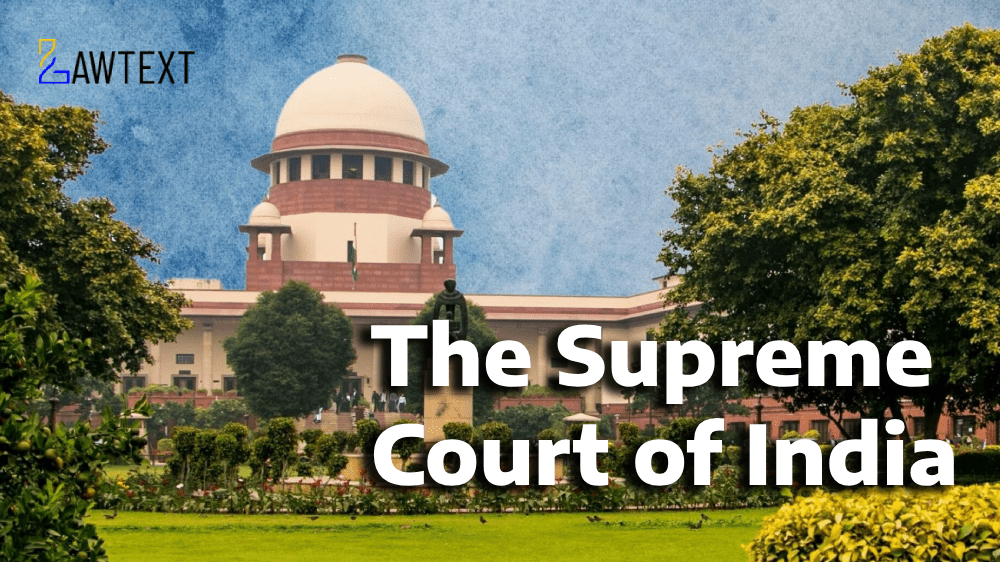Case Note & Summary
The maintainability of a suit filed by the State of West Bengal against the Union of India under Article 131 of the Indian Constitution, challenging the actions of the Central Bureau of Investigation (CBI) after the state's withdrawal of consent for CBI jurisdiction. The Supreme Court examined whether such a dispute falls under its original jurisdiction as defined by Article 131, emphasizing the distinct interpretation of 'State' under Article 131 compared to Article 12, and the necessity for disputes to involve legal questions impacting constitutional rights. The Court rejected the Union's preliminary objections, including issues of maintainability and suppression of facts, affirming that the suit raises substantial constitutional questions regarding federalism and the division of powers between the Union and the States.
Introduction Overview of the Case: Dispute between the State of West Bengal and the Union of India regarding CBI jurisdiction. Context: State of West Bengal's withdrawal of consent for CBI investigations under Section 6 of the DSPE Act. Preliminary Objections Objections by the Union of India: Maintainability of the suit under Article 131. CBI not being a 'State' under Article 131. Pendency of similar issues in other courts. Judgment Analysis by Justice Y.V. Chandrachud Article 131 Interpretation: Dispute must involve legal questions impacting constitutional rights. States' right to challenge the central government. Emphasis on legal rights in the context of federalism. Legal Rights and Federalism Discussion on Legal Rights: Legal rights in the federal structure and the Constitution. Reference to the State of Bihar v. Union of India case. Limitation of Parties and Subject-Matter in Article 131 Entities Involved: Only disputes between specified entities (Union and States) are maintainable. Subject-matter must involve legal rights. Plaint Reading Plaintiffs' Arguments: Articles 246(1), 246(3), and relevant entries in the Seventh Schedule. Section 6 of the DSPE Act. Federalism and constitutional structure. Justice Chandrachud's Observations Private Parties and Article 131: Private parties cannot be involved in Article 131 suits. Legal rights beyond just constitutional rights. Supreme Court's power to grant relief beyond declaratory judgments. Conclusion Interpretation of Article 131: States' right to challenge the Union Government. Reaffirmation of maintaining constitutional safeguards. Doctrine of Federalism and Central-State Relations DSPE Act and Federalism: Federal structure and the requirement of State consent under Section 6 of the DSPE Act. Balance between State autonomy and Union authority. Judicial intervention in cases of jurisdictional encroachment. Cause of Action of the Suit Averments in the Plaint: Conditions under Sections 3, 5, and 6 of the DSPE Act. Withdrawal of consent by the State of West Bengal. Alleged constitutional overreach by the CBI. Conclusion Legal Issues and Federalism: Legal issues regarding CBI jurisdiction post-withdrawal of consent. Substantial constitutional questions necessitating adjudication. Rejection of the Union's preliminary objections. Listing the suit for further proceedings and final hearing. References to Judicial Precedents Relevant Cases: M. Karunanidhi v. Union of India & Another. Union of India and Another v. Tulsiram Patel.
Issue of Consideration: THE STATE OF WEST BENGAL VERSUS UNION OF INDIA
Premium Content
The Issue of Consideration is only available to subscribed members.
Subscribe Now to access critical case issues





